2024 Awards for Constructive Dissent
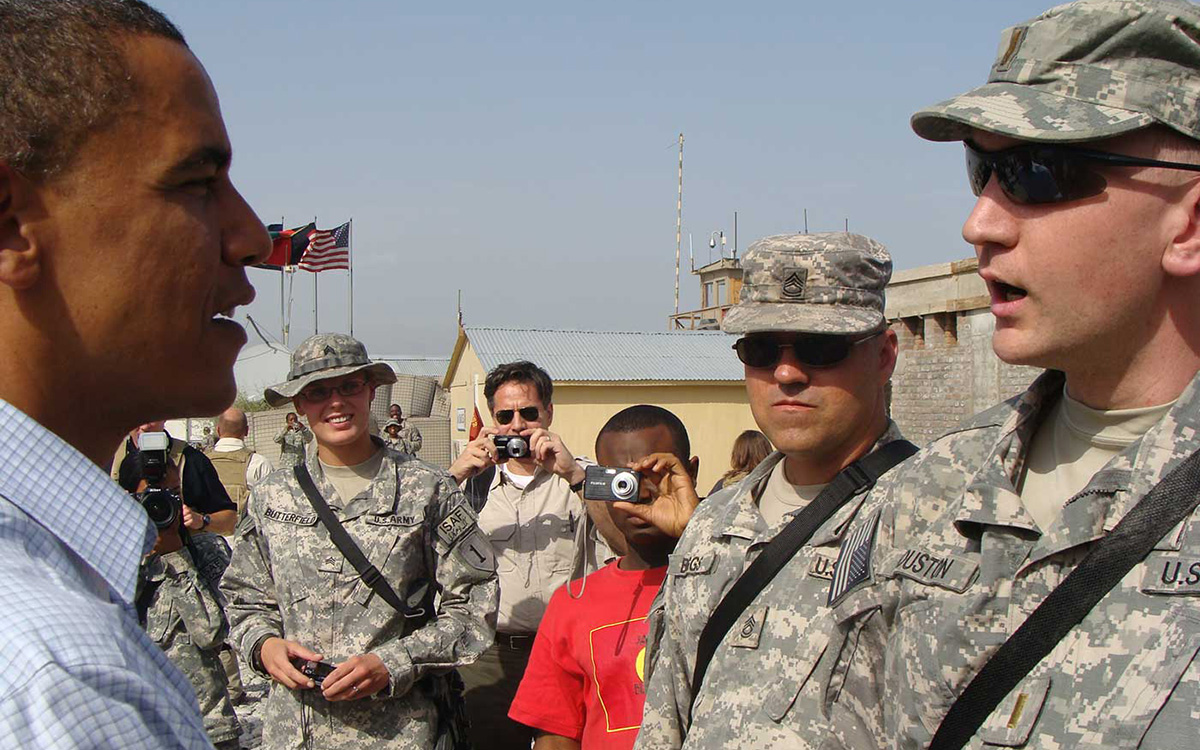
David Houston greets President Barack Obama while on deployment in Afghanistan.
F. Allen “Tex” Harris Award for Constructive Dissent by a Foreign Service Specialist
David Houston: Leadership in Digital Innovation

David Houston
David Houston, diplomatic technology chief at U.S. Embassy Luxembourg, has been awarded the prestigious F. Allen “Tex” Harris Award for Constructive Dissent for his exceptional work in advancing U.S. foreign policy through digital assets (DA) and distributed ledger technology.
Houston’s unique ability to straddle the line between applied and policy-driven technology has made him an indispensable leader in this emergent field, as the State Department increases its role in shaping cyberspace and global financial markets.
Houston’s experience and expertise in digital assets go back several years. He played a critical role in the wake of President Joe Biden’s 2022 executive order on the responsible development of digital assets. Tasked to represent the State Department in an interagency working group to develop a national research and development agenda, he took a methodical and inclusive approach.
Houston analyzed three years’ worth of cables—more than 600 documents—on digital assets, indexing them into a searchable database. This initiative distilled important insights and provided a valuable tool for diplomats across the department to quickly access relevant country- and topic-specific information on DA.
Houston’s analysis confirmed what he suspected: The department’s approach to digital assets, particularly in the context of U.S. foreign policy, lacked the necessary scope to fully address the technological and human rights implications of these emerging tools. The interagency discussions had primarily focused on economic and financial aspects, often neglecting the broader policy issues related to distributed ledger technology and its potential impact on maintaining an open, secure, and reliable internet.
Recognizing this gap, Houston sought to build consensus at the working level, initially proposing two innovative ideas to the Secretary’s Policy Planning Staff. His first idea focused on experiential learning through creation of a “decentralized autonomous organization,” which led to a successful interagency workshop exploring this concept. His second proposal emphasized the need for adequate human resources to manage the nuances of the digital assets portfolio. Though his personnel-focused idea gained only nominal interest, his persistence in pushing for broader engagement continued.
Ultimately, to drive the urgent conversation he envisioned, Houston turned to the department’s formal Dissent Channel. In a 13-page cable, he presented both substantive and procedural dissent on the department’s handling of the digital assets portfolio. His detailed analysis raised critical concerns about the Department of the Treasury’s position on decentralized finance and advocated for a recalibration of the department’s approach to digital assets, placing a greater emphasis on human rights and technological factors.
This award affirms the State Department’s commitment to one of America’s finest traditions: dissent. It also helps galvanize support for the ongoing efforts underway to implement and consider the recommendations of the dissent cable itself.
–David Houston
Houston’s dissent sparked significant action at senior levels. His efforts led to a deputy assistant secretary–level meeting, where he presented his thesis and received support on several important points. The Secretary of State and other seventh-floor principals concurred with several of his findings, setting the stage for important policy shifts. These shifts include reorienting the department’s digital assets portfolio toward a more affirmative vision that integrates human rights and technological considerations alongside cyberspace efforts.
The Secretary’s office also tasked the under secretary for economic growth, energy, and environment (E) with producing a topline policy framework by mid-2024 to guide the department’s work on digital assets. This effort is supported by regular assistant secretary–level meetings on the subject. Additional anticipated changes include increased engagement with civil society and industry, coordination with the Foreign Service Institute on potential training options, and consideration for creating or reorganizing positions dedicated more directly to the digital assets portfolio.
Reflecting on his award, Houston notes: “This award affirms the State Department’s commitment to one of America’s finest traditions: dissent. It also helps galvanize support for the ongoing efforts underway to implement and consider the recommendations of the dissent cable itself.”
Houston’s career is an example of a steadfast commitment to addressing the complex and often controversial challenges of U.S. foreign policy. A former U.S. Army captain and combat veteran of the Afghanistan war, Houston brings technical and leadership expertise to his role as a diplomatic technology officer. His academic background, which includes studies in music, linguistics, computer science, and international relations, uniquely positions him to navigate the interdisciplinary challenges of the digital age.
Since joining the department, Houston has served in Beijing, Panama, Mogadishu, and Washington, D.C., where he worked on cyber policy with the Bureau of Democracy, Human Rights, and Labor and provided IT support for posts in Europe in the bureau of Diplomatic Technology.
David Houston’s contributions to digital diplomacy have strengthened U.S. foreign policy and demonstrated the vital role of technical expertise in shaping the future of diplomacy.
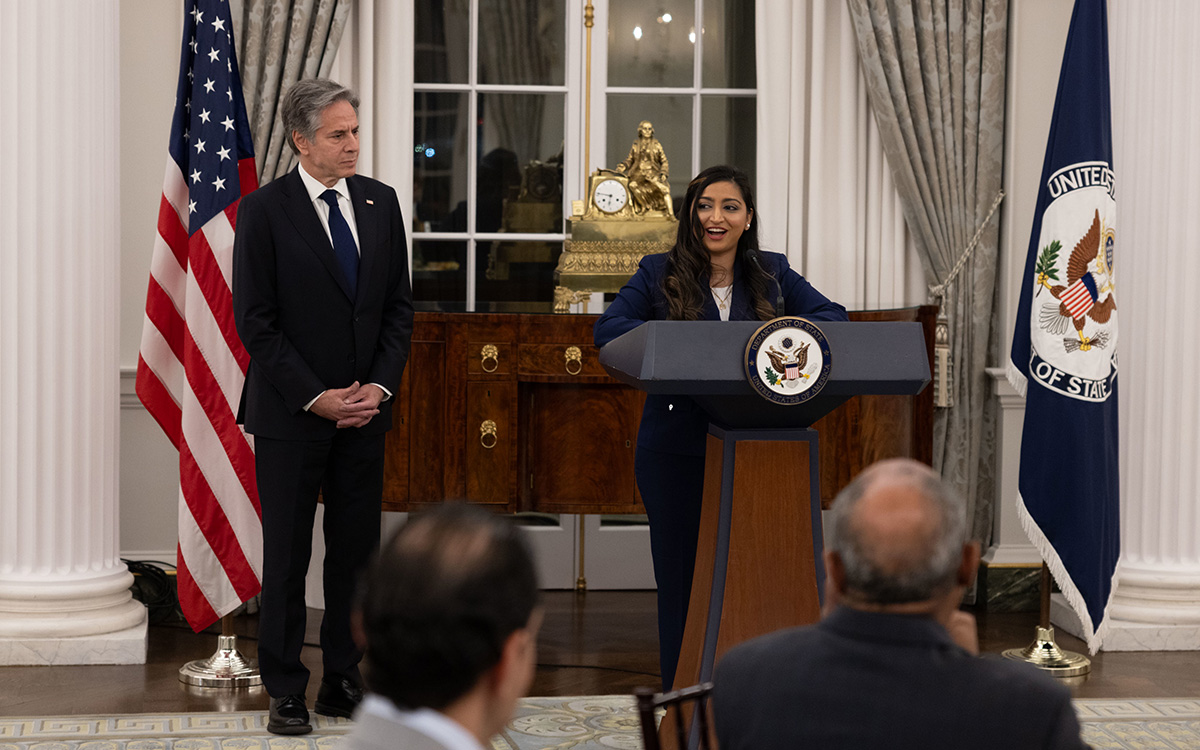
Mariya Ilyas presenting at a State iftar event she helped organize in April 2024.
W. Averell Harriman Award for an Entry-Level Officer
Mariya Ilyas: Fostering Unity in Divisive Times
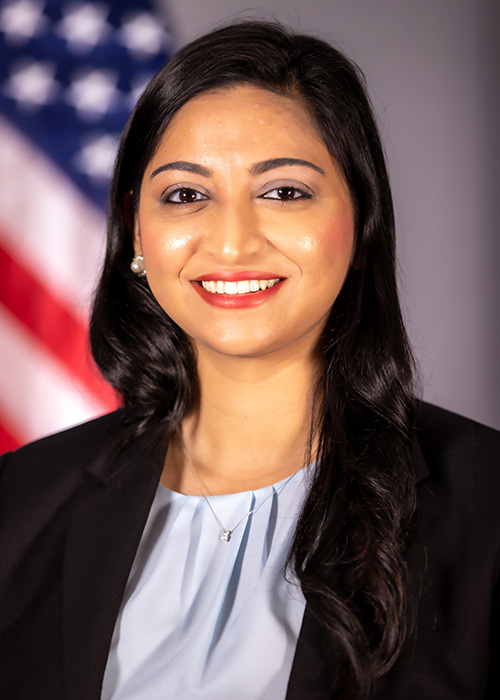
Mariya Ilyas
Mariya Ilyas, a political-coned Foreign Service officer, has been named the recipient of the 2024 W. Averell Harriman Award for her initiative, courage, and leadership.
Currently serving as a staff assistant to Ambassador Linda Thomas-Greenfield at the U.S. Mission to the United Nations (USUN), Ilyas has been a powerful but pragmatic voice of dissent since Hamas’ Oct. 7, 2023, attack on Israel—challenging the U.S. government’s public messaging on support for Israel and, as chair of the employee organization American Muslims and Friends at State (AMFAS), undertaking sustained efforts to ensure that the State Department’s leadership hears the voices of Muslim and Arab employees.
One of Ilyas’ key initiatives has been expanding access to employee consultation services for Muslim and Arab employees. While those services were initially restricted to employees serving in Jerusalem and Tel Aviv due to resource limitations, she successfully persuaded the Bureau of Medical Services to broaden their reach, resulting in bimonthly virtual sessions; more than 100 employees worldwide have participated, receiving essential emotional support. Ilyas conveyed these employees’ concerns over both U.S. policy and messaging to senior department leaders.
“For me, dissent in the context of U.S. policy on Gaza came through community building,” Ilyas explains. “I wanted to support the people within the State Department—the individuals who come to work each day striving to make a difference.”
Ilyas’ leadership brought the workforce together through employee-centered initiatives. Most notably, on Oct. 30, 2023, she gathered Muslim, Jewish, and Christian employees from the State Department and the U.S. Agency for International Development (USAID) to host a “Moment of Silence in Unity and Peace” to honor innocent lives and stand together against hate. Ilyas delivered a livestreamed address at the C Street lobby of the Harry S Truman building where nearly 200 employees gathered.
“Together, we stand united against hate and terrorism, in all forms; and we stand in solidarity for peace and justice,” Ilyas remarked. The event featured speeches from senior department leaders, including Deputy Secretary for Management and Resources Richard Verma and USAID Deputy Administrator for Management and Resources Paloma Adams-Allen.
Together, we stand united against hate and terrorism, in all forms; and we stand in solidarity for peace and justice.
–Mariya Ilyas
Ilyas subsequently organized an interfaith “Gathering in Solidarity” on Nov. 29, 2023, building a coalition with leaders from 17 employee organizations to co-sponsor the event. The event featured speeches from Department Executive Secretary Dereck Hogan and Under Secretary for Arms Control and International Security Bonnie Jenkins as well as readings from various religious texts, poetry, and an invocation.
While serving as a political-military officer within the Bureau of Political-Military Affairs, Ilyas noted the risk that U.S.-made weapons could cause civilian harm in Gaza, expressing her concerns to Secretary of State Antony Blinken, Deputy Secretary Verma, and Under Secretary Jenkins.
The consequences of Ilyas’ advocacy efforts have reached beyond the walls of the State Department. She played a critical role in persuading the Office of International Religious Freedom to publish the office’s first-ever cable addressing Islamophobia to educate foreign governments on the importance of combating rising hate against religious minorities. Working closely with White House liaisons, she also facilitated a global listening session for AMFAS members and collected feedback from more than 70 individuals, which directly informed the Biden administration’s first-ever National Strategy to Combat Islamophobia.
Building on months of work, Ilyas invited Secretary Blinken to break bread with Muslim employees at an iftar event on April 8, 2024, during Ramadan. Secretary Blinken applauded her initiative in organizing the event and commended her service to the department and the country. “I am proud to be your colleague,” he said. “Your leadership to bring us together, even in the most difficult times, is in the highest tradition of service to this department as well as to this country.”
From her early days as a Fulbright Scholar in Türkiye, to her time as a consular officer in Amman and Doha, to her current role at the USUN, Ilyas has consistently demonstrated initiative, courage, and leadership, showing how public servants can challenge the status quo, advocate for inclusive policies, and support their colleagues in trying times.
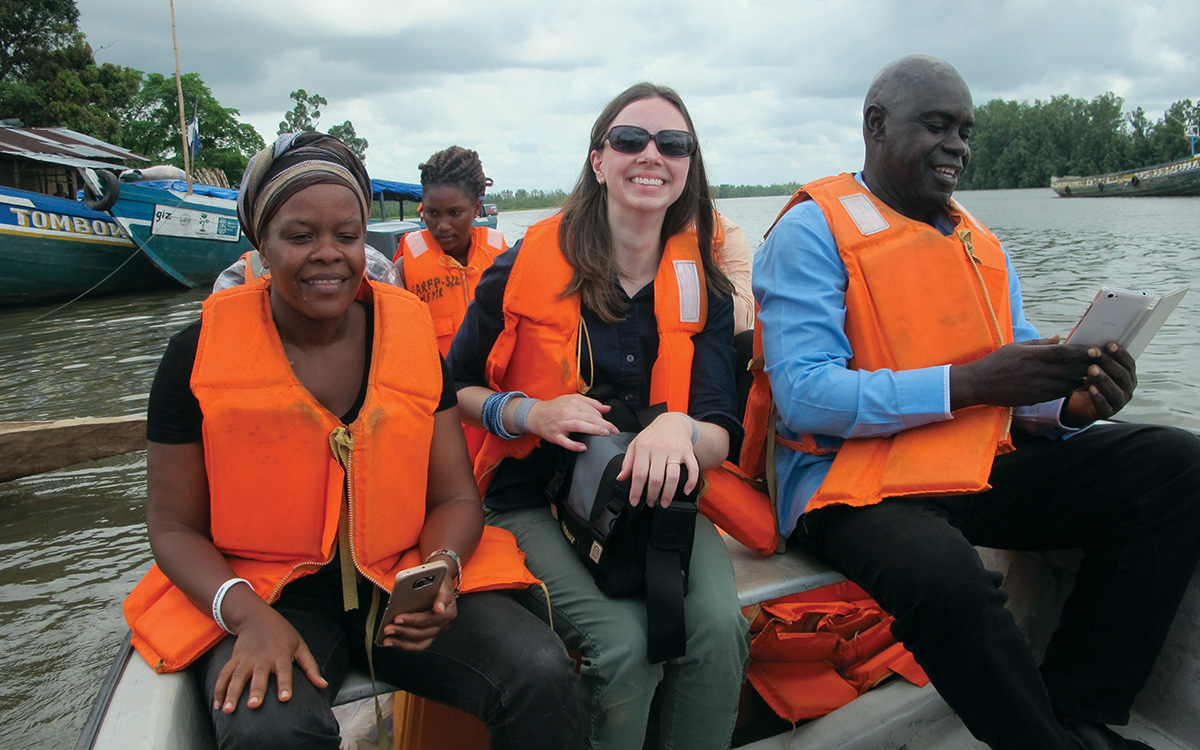
Emily Green en route to Bonthe, Sierra Leone, for an embassy-funded civic education program in the lead-up to the 2018 election.
William R. Rivkin Award for Constructive Dissent by a Mid-Level Officer
Konrad Turski, Caryl Tuma, Emily Green, and Michael Casey: Communicating Concerns in a Sensitive, Fast-Moving Situation
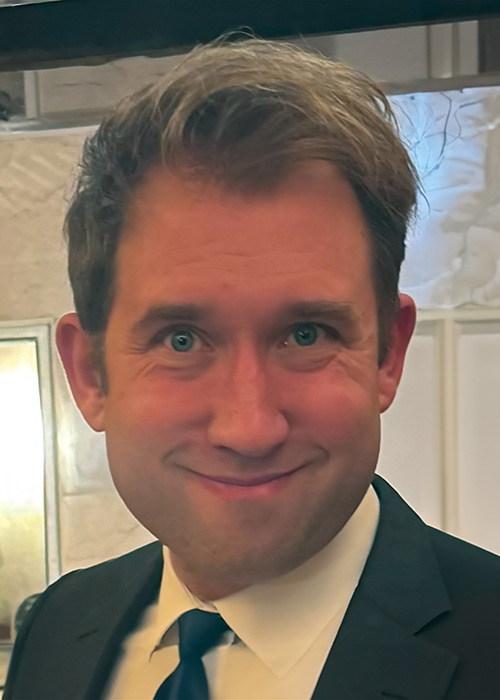
Konrad Turski
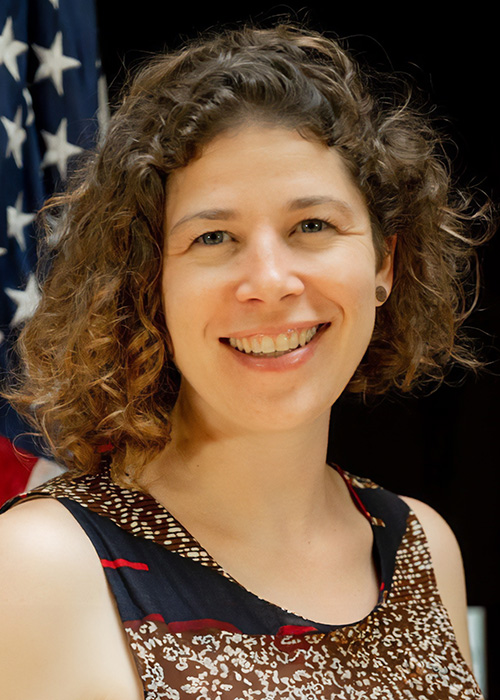
Caryl Tuma

Emily Green

Michael Casey
Konrad Turski, Caryl Tuma, Emily Green, and Michael Casey have been selected as co-recipients of the William R. Rivkin Award in recognition of their efforts, initiative, and leadership in the face of an evolving and sensitive situation.
Following the Oct. 7 Hamas attack on Israel, they—along with their colleagues—used their resources and information on the ground to provide Washington accurate details and thoughtful analysis on the various and often conflicting U.S. policy interests and priorities.
Over the next few months, policy discussions progressed about the impact the war was having on the lives of Gazan civilians. These four officers at the U.S. Office of Palestinian Affairs (OPA) in Jerusalem decided a Dissent Channel message was their best option to ensure that their concern, based on their on-the-ground experience and nuanced perspectives, would be evaluated and considered.
The cable they drafted exemplified the value of intellectual courage: It clearly defined the topic on which they disagreed, and it was narrow enough for the department to take action if it chose to do so. Their dissent cable showed their understanding of the subtleties of U.S. policy on the Israeli-Palestinian conflict and its regional implications, and clearly articulated why, despite the complexity, the department should take specific actions.
The four co-recipients took Arabic together and have served together for the past five years.
I am grateful that the department encourages intellectual debate about policy and process, and that our leadership in Jerusalem embraced that.
–Caryl Tuma
Konrad Turski is a career Foreign Service officer who joined the State Department in 2014 and previously served in Cairo and Buenos Aires. From 2021 until 2024, he served as one of the two Gaza watchers at OPA in Jerusalem, where he focused on helping leadership in Jerusalem and Washington understand the humanitarian and economic situation inside Gaza.
With the eruption of the conflict in October 2023, his work, like that of his colleagues, was transformed overnight, including efforts to ensure the safety of locally employed staff and their families inside Gaza. He and his colleagues began working to draw attention to areas where policy changes could help protect the lives of civilians amid the devastating conflict.
“I once heard it said that the people who know the most about something are those least able to talk about it,” Turski says. “The department’s Dissent Channel is a unique opportunity to test that notion, providing not only a way to share what we see on the ground directly with our leadership, but the opportunity to do so in a way that can actually improve our policy. For me, this award represents a recognition of our responsibility as Foreign Service officers to do exactly that.”
FSO Caryl Tuma arrived in Jerusalem in August 2020 and worked in OPA for three years, advancing the U.S. relationship with Palestinian private sector representatives and entrepreneurs across East Jerusalem, the West Bank, and Gaza, and developing programs that support Palestinian students and young professionals with leadership and professional development opportunities. In the course of her work, she also had the opportunity to meet Palestinian and Israeli peacebuilding activists, who are inspiring in their commitment to coexistence.
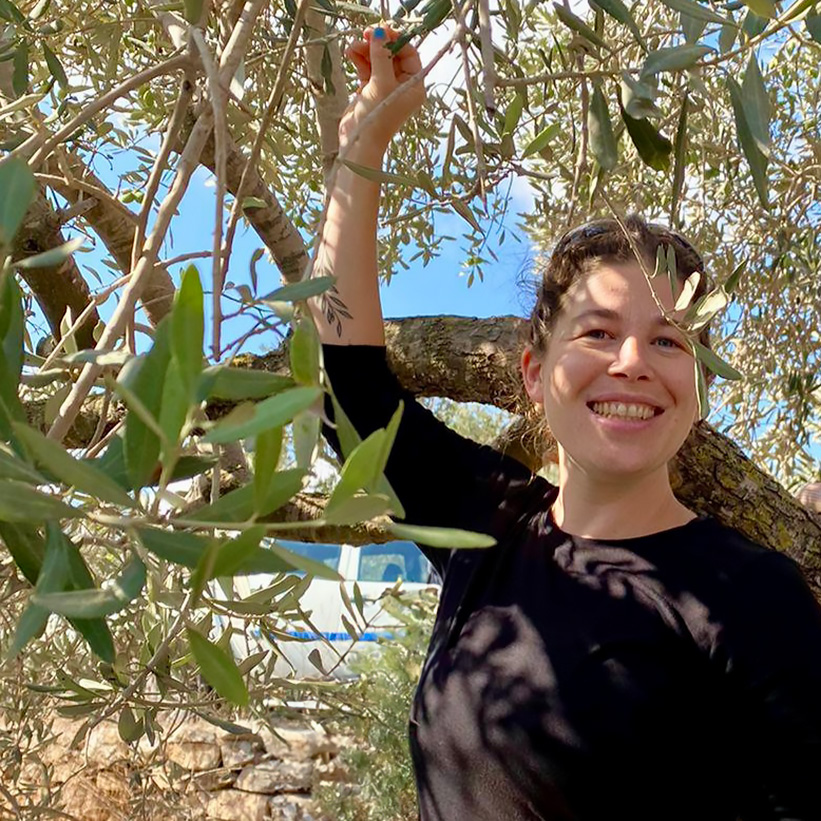
Caryl Tuma at an olive grove in the West Bank.
“I am grateful that the department encourages intellectual debate about policy and process, and that our leadership in Jerusalem embraced that,” Tuma says. “The culture of dissent—including an official dissent channel—is part of that larger picture, and the fact there’s an award for it is a clear indication of that value. I hope this award is evidence that intellectual and principled discussions can exist, even around the most controversial and heart-wrenching issues.”
Tuma joined the State Department in 2009 as an intern in the Conflict and Stabilization Office, later becoming a civil servant in the Bureau of Near Eastern Affairs before joining the Foreign Service in 2014. She previously served in Manama and Dakar.
Career Foreign Service Officer Emily Green was the cultural affairs officer at OPA from 2021 to 2024. Her team included Gazan local staff, and they worked with Gazan exchange participants, alumni, and civil society partners. She also met Israelis passionate about building peace through her work with the peacebuilding portfolio, which was done in collaboration with her colleagues at Embassy Jerusalem.
“The Oct. 7 Hamas attack on Israel was both shocking and horrifying, marked by brutal violence and the abduction of innocent hostages,” Green says. “In the aftermath, the high civilian casualties in Gaza and the suffering endured by the displaced population have been deeply distressing. Throughout this crisis, I had the privilege of working alongside many brave colleagues trying to do the right thing in an utterly untenable situation.”
Green continues: “Dialogue around this very complicated and horrific war has been twisted to harm even more people through a proliferation of anti-Semitism and anti-Arab, anti-Muslim hatred, discrimination, and attacks. Our dissent wasn’t about choosing a side but rather recognizing our duty with empathy and compassion.”
Regarding the award, Green says: “Dissent is important. It makes our institutions stronger, and I’m honored to work for an organization that values opposing views even when it’s complicated. I hope anyone reading this will find the courage to speak up in alignment with your values.”
Green previously served in Freetown, Conakry, Tel Aviv, and Washington, D.C.
Michael Casey resigned from the Foreign Service in July 2024, while serving as the deputy political counselor at OPA in Jerusalem. He had previously served in Kuala Lumpur, Islamabad, Beijing, and as a watch officer in the Bureau of Intelligence and Research in Washington, D.C. Before joining the Foreign Service, Casey was an Army engineer officer, serving in Iraq, Alaska, and North Carolina.
The integrity, courage, and clear-eyed commitment of this group to speaking up demonstrates the importance of constructive dissent, particularly in a crisis situation, and makes them outstanding recipients for this prestigious award.
When sharing or linking to FSJ articles online, which we welcome and encourage, please be sure to cite the magazine (The Foreign Service Journal) and the month and year of publication. Please check the permissions page for further details.









